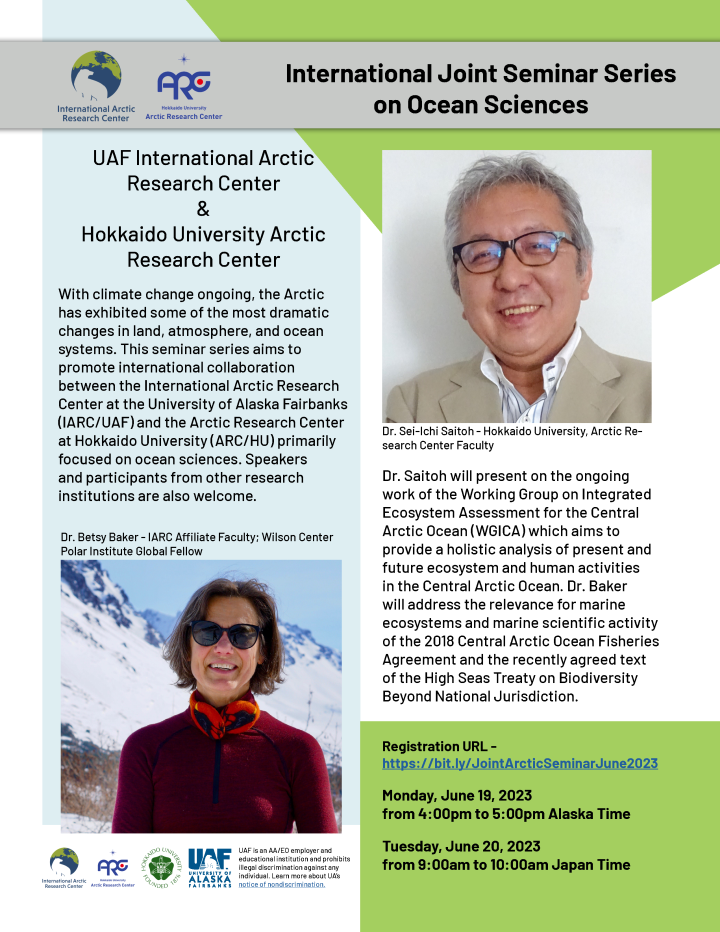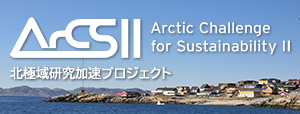|
Dr. Sei-Ichi Saitoh (Professor Emeritus ARC-HU)
Title:
Activities of the ICES-PICES-PAME working group on Integrated Ecosystem Assessment for the Central Arctic Ocean (WGICA)
Abstract:
WGICA aims to provide a holistic analysis of the present and future status of the Central Arctic Ocean (CAO) ecosystem and human activities therein. Climate change reduces sea ice, increases light penetration, causes regionally variable trends in stratification and mixing of the water column, increases inflow in both the Atlantic and Pacific sectors, and enlarges heating of waters at the surface and extending deeper. These changes in turn affect primary production and cascade through the foodweb to ice-associated fauna, zooplankton, fish, benthos, seabirds, and marine mammals. They may be exacerbated by increasing human activities in and around the CAO, including increasing pollution from ship traffic and from the transport of contaminants to the ecoregion by rivers and ocean currents. During this past year, WGICA has studied and described human activities in and around the CAO and resulting pressures. In the next three years, WGICA planned to identify ecological, economic, social, and institutional research questions, to enable further stakeholder involvement, and to identify integrated assessment methods that can help evaluate ecosystem conditions and changes. In this presentation, we present the main results from the ongoing reporting of the main human activities (global sources, shipping, military and tourism), pressures (contaminants, garbage, noise, etc) and the work on describing the vulnerability of the ecosystem.
|
|
Dr. Betsy Baker (IARC Affiliate Faculty; Wilson Center Polar Institute Global Fellow)
Title:
Fisheries, Biodiversity and International Law in the Central Arctic Ocean
Abstract:
Baker’s recent work focuses on legal and policy aspects of the 2018 Central Arctic Ocean Fisheries Agreement (CAOFA), which effectively places a moratorium on commercial fishing there until more is known about stocks in the region. Japan and the United States are among the ten parties to the CAOFA. Separately, negotiations that concluded in March 2023 resulted in the prospect of a new legal agreement on Biodiversity Beyond National Jurisdiction (BBNJ) for high seas areas globally. Potential interactions with the BBNJ Treaty may create opportunities for the CAOFA to provide a model for other regions interested in designing research programs involving marine scientists, Indigenous and local knowledge holders to strengthen marine ecosystems and support marine biodiversity. More immediately, provisions in both agreements have important implications for the future of marine scientific activity generally.
|









